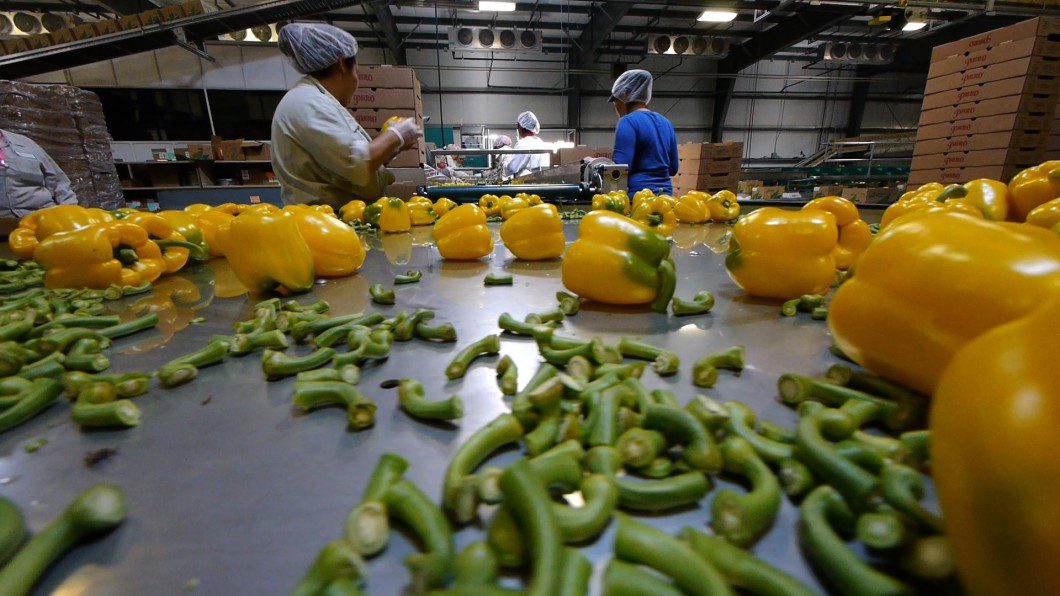Imagine living in a garage, the size of two cars, with 25 other people. Imagine having to do that and also to share three washrooms. It’s an example of the modern slavery atmosphere in some rural Ontario farms that never gets talked about, according to Chris Ramsaroop, an activist with Justicia for Migrant Workers.
“[The] mainstream media…position the arguments of migrant workers and temporary foreign workers from a cost-benefit analysis, where we look at the benefits for our Canadian economy,” Ramsaroop said in an interview in April at Centennial College’s

Juan Romero, Chris Ramsaroop (second from left), Mishaal Jamil, Jessica Mcdonald and Cheryldean Peters at Centennial College Story Art Centre April 10, 2017. (Toronto Observer photo)
East York campus.“However the social cost to the workers and their family…nobody ever talks about that.”
J4MW is a non-political activist organization that fights for the rights of migrant farmworkers in Canada. Migrant farmworkers are not able to apply for the Employment Insurance program even when they are reported to contribute an estimated $11 million into it. Sometimes, when migrant farmworkers stand up to demand better working and living conditions, the employers force them to return to their home country, at their own expense. There are no laws or unions to protect their rights to appeal their cases.
“The law constructs migrant workers’ vulnerability.” Ramsaroop told students. “It’s to create provincial and federal laws that exclude agricultural and migrant workers from workplace protection that you and I get. This enables the exploitation to exist.”
An award-winning documentary film about the issue, Migrant Dreams, by Min Sook Lee, showcases another hidden problem for the workers. It is illegal for migrant workers to pay money in order for them to come to Canada for employment. Yet recruiters ask migrant workers for about $6,000 up front, and tell them to lie to Canadian Border Services Agency officers.
“All the Canadian government agencies know about these recruiters,” Ramsaroop said, adding that his group is not moving to try to get workers to refuse to hand over the illegal money. “Now do we want to criminalize these workers or do we want to have civil protection so they would not be penalized?”
Ramsaroop hopes the Liberal government of Prime Minister Justin Trudeau takes up the issue of legal rights for migrant workers as part of its commitment to the Canada 150 celebrations taking place this year.
“Migrant workers are not economic units. We have a long history of workers being shafted by immigration laws and society,” Ramsaroop stated. “If we want to change for good in the next 150 years, we have to learn from our past. And we are at a path to not to do so at the moment.”

